Guitar Noise: Writing songs that are seven minutes long and more takes a great deal of inspiration. Where do you get your inspiration from?
Pendragon: Song writing is in many ways a gift. Many songwriters would tell you that perhaps many of their best songs, lyrics, and melodies were ideas that ‘just popped in there’. Ideas that came out of nowhere. Peter (Gee) would say that inspiration is ultimately from God. But whatever your own view, many ideas do just appear in your head! In another sense though, songwriting is a craft which has to be worked at and honed over days and weeks and sometimes, years! Sometimes a ‘nothing’ idea can be turned into a great piece or song, just by adding a vocal or one instrument! All four of us get our inspiration from life, from events that have happened to us, from world events, and from travelling to different places and culture.
Pendragon: Song writing is in many ways a gift. Many songwriters would tell you that perhaps many of their best songs, lyrics, and melodies were ideas that ‘just popped in there’. Ideas that came out of nowhere. Peter (Gee) would say that inspiration is ultimately from God. But whatever your own view, many ideas do just appear in your head! In another sense though, songwriting is a craft which has to be worked at and honed over days and weeks and sometimes, years! Sometimes a ‘nothing’ idea can be turned into a great piece or song, just by adding a vocal or one instrument! All four of us get our inspiration from life, from events that have happened to us, from world events, and from travelling to different places and culture.
GN:When writing a concept album, it is obvious that the songs are written specifically for the album. Do you write songs at other times (on the road, on vacation, etc)?
P: Some of the best ideas come when you are not especially thinking about writing music. We are often inspired by visiting different countries and different people. Look at The World album cd booklet, and you’ll see that each song Nick wrote in a different physical location or country. Much of that particular album was inspired by Nick’s holiday in the USA. On the road can often be a good time to write. Words for lyrics come to you, and we can jam ideas in sound checks etc.
GN: When recording an album, do you use songs that were specifically written for the album or do you use songs that have been written at other times, perhaps years earlier?
P: Usually, the majority is current, quite fresh material. But often there is at least one song or idea that has been around for a lot longer. Take The World album. All the songs were written over about a two year period, apart from The Last Waltz, which was a song Nick and Peter demoed back in about 1986 which was reworked. Clive always uses most of the material he has written, and has used ideas in Shadowland and Arena from his two earliest bands “Sleepwalker” and “The Cast”.
GN: The Masquerade Overture has been hailed one of the greatest albums of all time by the fans of the band and reviewers at such sites as The Dutch Progressive Rock Page (www.dprp.vuurwerk.nl). While preparing the next album, does this add extra pressure or do you just see it as the next album?
P: It does add extra pressure. You try and tell yourself that it doesn’t, but it does! Nick obviously feels this pressure more than anyone else as the main songwriter. But every album is hard to write. And because most of the Pendragon albums have always done better with each album, it doesn’t get any easier! If you leave a longer gap between albums, this also adds to the pressure, both financially, and because people tend to forget about you more!
GN: Pendragon being a Progressive band, does it happen that you write songs that are not Progressive?
P: We would generally say that it took us up to The World album to really find our true writing style. Kowtow was almost there, but still developing in a way, as we were still trying to secure a major record contract and single releases with Kowtow. It was done as an album demo initially for EMI Records. They turned it down!!
Nick’s writing style is really now the Pendragon sound, but he does write more instrumental stuff as well. Clive writes mainly progressive and some classical. Peter and Fudge write a mixture of progressive, rock and groove stuff.
GN: Does improvisation play an important role in your songwriting techniques?
P: Not really in Pendragon any more. Occasionally we might get something we like at a sound check, or during rehearsals. But we usually spend most of the time trying to relearn our existing songs on the cds!! Clive with Arena has written more stuff through improvisation, I think.
GN: Do you look for different methods of writing your songs?
P: We try to do something different for every album. Not every album will be a concept album, with several main themes being repeated in different arrangements. Some songs will be verse chorus, some will be through composed, which means that no ideas or themes repeat at all. The song just goes on evolving until it is finished! Sometimes you start with words and no music, sometimes with just a melody on one instrument, sometimes you have all the music written before you write any lyrics.
Every album is different. So, yes we’re always looking for new arrangements and song writing methods.
GN: A common question among the visitors to Guitarnoise: How do you resolve the issue of lack of inspiration?
P: There is no easy answer, unfortunately!! It depends on the particular songwriter’s approach. Clive is very good at working through songs and arrangements until they are either finished, or filed away to be looked at at a later date. Both Nick and Peter tend to just have a break from the song idea and go back to it on another day when they feel more inspired. You usually cannot force inspiration to come.
Its either there or its not. If its not, then it may be best to come back to it. However, sometimes, by reworking the song, and stripping it back down to its bones, or by adding just one part to it, or sometimes even by an accident, inspiration and new life can suddenly come to the song!
GN: Do you ever see yourself, at some time in the future, not writing songs?
P: No, not really. Either music is in you, or its not. If its in your heart then there’s a part of you that will always want to express that through writing songs or by jamming or improvising with other musicians. I think though, often as songwriters get older their output can diminish. In some ways songwriting can seem more difficult.
GN: If there were no more market for your material, would you consider trying some other style or would you keep writing the way you do?
P: I think to write the best music you have to be ‘true to yourself’. In other words, to write what naturally comes out of you, rather than always trying to adapt it to what the commercial marketplace demands.
Pendragon spent the first ten years compromising between trying to write commercial music and progressive music at the same time. Once we stopped worrying about what people wanted from us, our style came naturally. Its hard to say. I think everyone wants popularity, but I think the four of us would always want to write good emotional melodic music.
GN: Have you ever written for other people? If so, what are your thoughts on the subject?
P: Clive has written for other artists, like Tracy Hitchings and Oliver Wakeman, so he has the most experience out of the four of us. He has also done some film soundtrack music. Nick has written one or two bits and pieces for others, but not really much.
GN: What are your thoughts on co‑writing?
P: It depends very much on the particular band situation. There seem to be two main styles which work well. One is for 2 or 3 people to co-write together. Clive does this with Mick Pointer and John the guitarist in Arena very well. He coordinates between the three of them. In Pendragon, it is very much the other style, where you have one strong writer and one strong direction. Because Nick is the main writer and lyricist, it gives the band’s music a very strong and distinct identity and direction. Clive can put his songwriting energies into Arena and his solo projects, Peter into his solo albums, and Fudge is also starting to write a solo album.
Co-writing can be exciting as long as the egos are dealt with and you all know exactly where you stand within the writing partnership.
GN: Are there any techniques, methods, etc, that help you that you would like to share with the visitors to Guitar Noise?
P: We would say the most important thing is to be yourself. Write what comes out naturally. Go for good rhythms and strong melodies. Try not to use any corny lyrics, and go for a good strong vocal melody. Try to make the song build and develop, so that even if it is a verse chorus song, the instruments change throughout it in what they are doing. Try to put your own identity into the song, so that you sound recognisable and not too bland! But take heart, because it can take time to develop your own style. But it will come. Songwriting tends to improve over the years.
Questionnaire 2: The Independent Artists
GN: What was your original reason for going independent?
P: We couldn’t get a major record deal in the last half of the nineteen eighties. We had two independent deals, one with Elusive Records who put out an EP Fly High Fall Far, which is now on The Rest Of’ CD, and The Jewel, our first album release. The second deal was with Awareness Records, who put out 9:15 Live and a single, Red Shoes!
Both deals fizzled out when our singles didn’t take off, and our album sales were not big enough to keep the record companies’ interest!!
We were always chasing that elusive major record contract, but never quite got it. The closest we got was to demo the whole of what was the Kowtow album for EMI Records, only to find that the man who might have signed us up was leaving the company!! So, we either faced giving up as a band, or starting to put our own releases out, because no one else would sign us!!
GN: When you decided to go independent, start your own label, record your own albums, what were the problems you encountered for which you were surprised?
P: You find yourself on a very steep learning curve! Our first problem was money! We were already in debt by several thousand pounds, but we managed to find a very kind and trusting bank manager, who was a Marillion fan too, to lend us 5 thousand pounds to get started!!
The next problem was finding and setting up distribution deals in all the main countries. We managed to find a guy at Pinnacle, our UK distribution company, who likes progressive/melodic rock music, and he gave us a chance! We concentrated initially on getting releases in our strongest countries, Holland, France, Germany and the UK.
Getting cds made and booklets produced can be a real nightmare too, because something can always go wrong, and being the artist as well as the label, you know exactly how perfect you want everything to be!
GN: Writing songs, recording albums, touring, running a record label, promoting, dealing with the day‑to‑day realities of management must be a full‑time job. How do you cope with all this?
P: Well, for the first couple of years, Nick more or less ran everything by himself, doing a bread round from 5 o’clock in the morning, and then starting work in the office at ten. So he had to be in bed by about 9 o’clock at night! The rest of us struggled to earn money just to help keep ourselves afloat. Fudge did all kinds of things, Clive was trying to earn his money by setting up a recording studio, Thin Ice.
And Peter was working in various different office temping jobs. Fortunately, after we did our fist release Kowtow, after a while Nick was able to give up the bread round and work full time running the company!! It all consumed most of our time.
GN: Would you be willing to sacrifice the absolute control you now have over your material in exchange for a lucrative contract with a major label?
P: It would really depend on the company and the contract in question. Everyone wants to be successful, and sell lots of albums, but we’re not really bothered about being ‘famous’ or anything. Sometimes it can be a real hindrance. We do our own thing, are true to ourselves musically, and can earn just enough to live on and to keep producing albums and touring. If we found a company who were genuine and liked this kind of music enough, then it might be a possibility. But we haven’t found such a company yet!!
GN: Do the pressures you face ever make you feel like just stopping?
P: Yes!!! But not so much these days. When you have no deal, no money, no house, no recognition, and you’re travelling around the country in the back of a van which keeps breaking down, and have to come in from a gig and go straight out to a day job too ‑ or you have to keep changing jobs to suit the music ‑ then you seriously think about giving up!!!
Our lowest points have been in the very early 80s before we met Marillion, and in the very late 80s when we couldn’t get any kind of major or minor deal. But the funny thing is, all the years of struggling make any kind of minor success much more worth while. You appreciate it so much more because you’ve all struggled together. We often make the quote about ourselves ‑ ‘Pendragon, the band who refused to give up’!!
We’ve been through all the ego thing and a lot of struggling, and I’m sure there’s more to come. But now, we’re just 4 good friends who enjoy working together.
GN: What would be your advice to someone who wants to embark on the independent adventure?
P: I would say, be realistic. It’s a risk. For all the small companies that start, probably half of them fail. You need to get some financial backing. You need to aim for a specific market. Don’t try to appeal to everyone, because then you may not appeal to any one in particular.
You need to find a band or artist to build your label around, who is going to have a degree of success. You can branch out later. The band needs to build up a sales base. We were fortunate, in that we did hundreds of club gigs in the UK before the rock circuit began to die.
And the 2 real breakthroughs for us were playing at the Marquee Club in London, first as a support, and then as a headline, and then supporting Marillion on a concert hall tour. Everyone needs an element of providence, or good fortune, and this exposure gave us enough sales to build a label on.
GN: Is there a measure of respect and support among independent artists?
P: Yes, I think so, because you know how hard it is yourself, you appreciate how hard it is for others. Not every small label survives.
Any of us can go under at any time. So there is a lot of mutual respect.
GN: What problems do you face when dealing with distributors?
P: Getting them to pay!!!! Getting them to pay before you go under!! Building a friendship with them, and building their confidence in your abilities as a business, and your ability to sell and market your own product. Knowing what deals to do, how much people can afford themselves, helping each other out. Language barriers can be a problem sometimes too! But trust, friendship, fairness and building confidence are the most important things. And when dealers send cds back rather than paying their bill can be difficult, if you had relied on that money!!
GN: Booking agents you approach may not know of you due to the fact that you are independent. Has this ever caused problems with booking?
P: Yes. Because of the size of Pendragon, we have to be realistic. If we wanted to do a concert hall tour in the UK, we wouldn’t be able to find anyone to promote it, because we wouldn’t fill up the venues enough. So you have to book gigs in each country according to your popularity in that particular place. For example, in many places we would play club size gigs, but in Holland for example, we have been able to play venues of up to two thousand people. Our name is known enough to usually get club, or sometimes college gigs. But obviously we don’t have the power that big companies have to book gigs.
GN: The fans respond positively to your music. Does this make the adventure worthwhile?
P: Ultimately, this is what keeps us going. I’m sure if there weren’t people there to buy the cds and come to the gigs, then we would give up!!! The people are everything in terms of appreciation. Everyone needs encouragement in order to keep going and to keep believing that what you are doing is right. Even if there were no people interested though, because music is in our blood, I’m sure we would make a few cds just for ourselves, because we like the music. And we would still play live, if not with each other, then at least in various other live situations.
GN: Do you personally feel that there is really a chance for the independents to make a significant mark on the whole recording industry and perhaps change it?
P: I think the independents already have made quite a big mark on the record industry. If bands can’t get any kind of deal then they either have to do it themselves, or perhaps give up and split up! We are lucky in that home recording has become so good quality and so cheap now that it is possible to make cds on a tight budget. I think there are other options now for bands who can’t get major deals, whereas before there weren’t in the same way. The industry has widened out.
There are many many more small labels and this has made it easier to get deals with distribution companies, because they recognize the small labels now, whereas before they didn’t. From an individual point of view too, we never made a penny out of our deals signed to other people. We only ended up in debt. It was only when we went independent and set up our own company that, after the risk, we finally saw some money back.
It will never be big sales, big money, or as secure, but it can be very satisfying!!!
http://www.guitarnoise.com/profile/pendragon-interview/





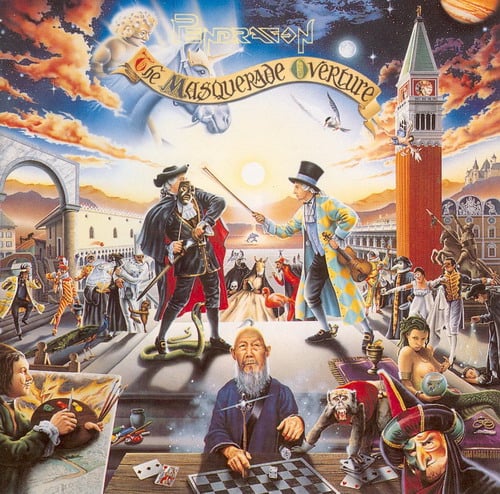
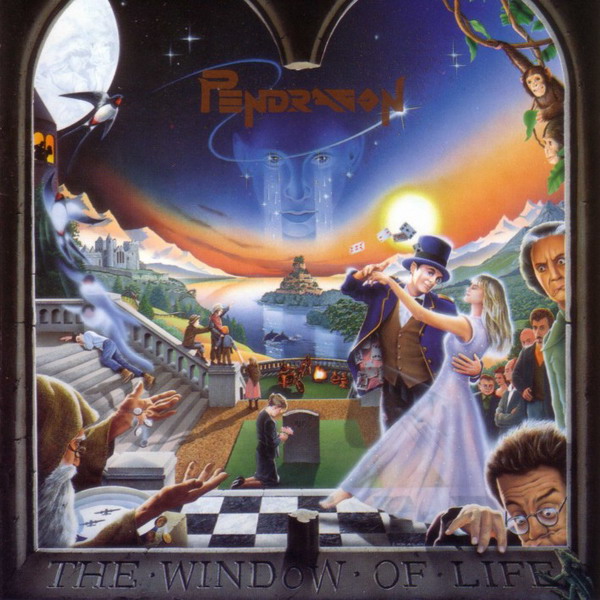
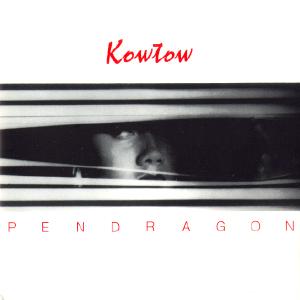
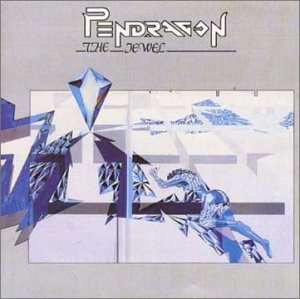
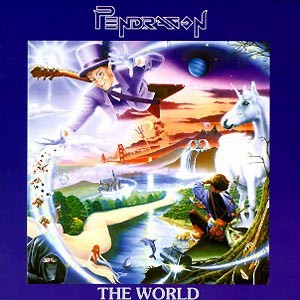
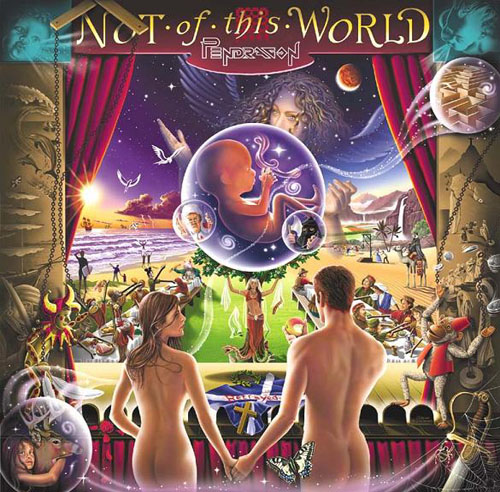
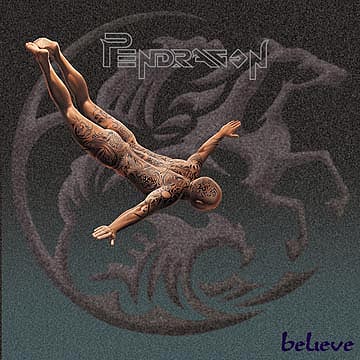

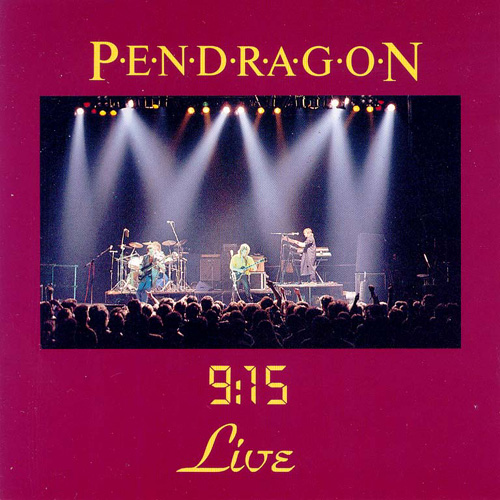
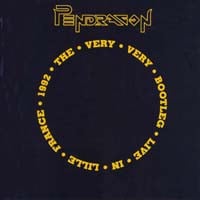
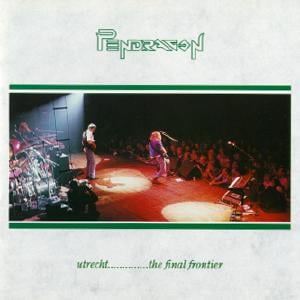
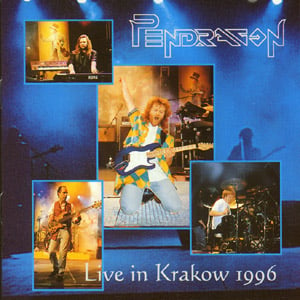
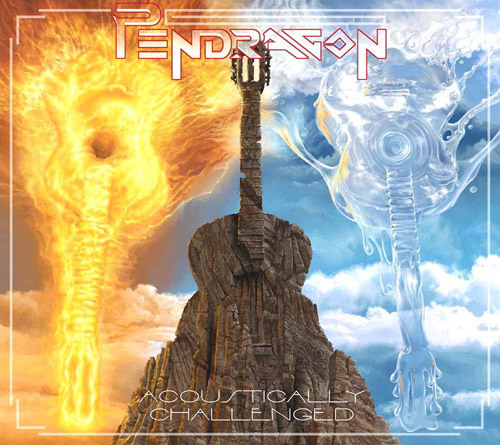
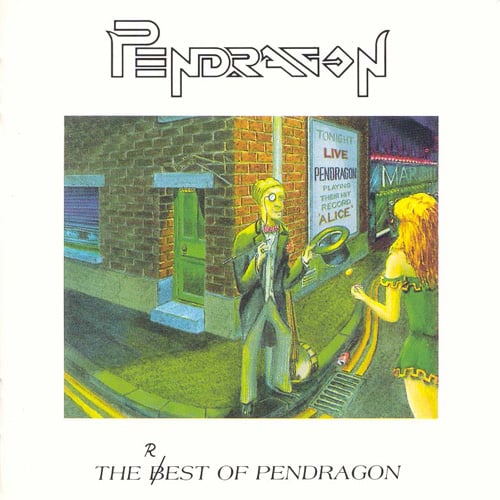
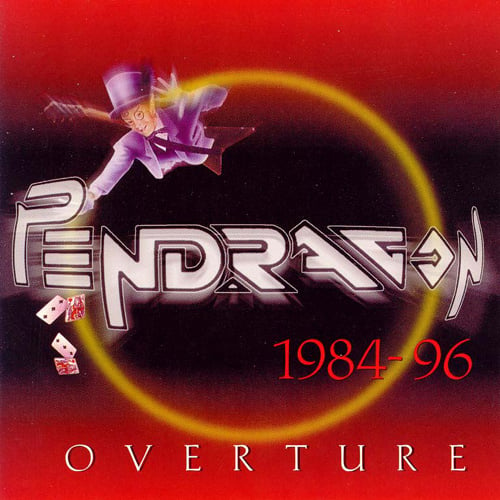
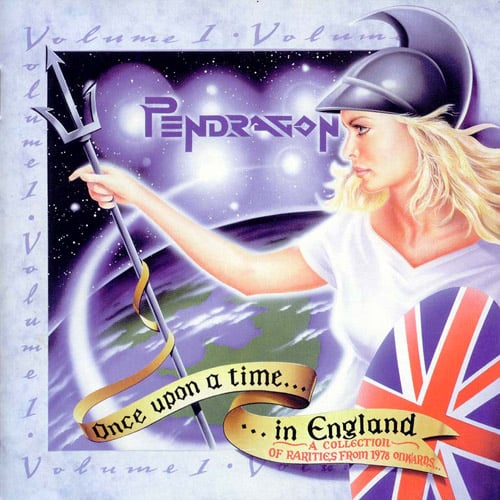
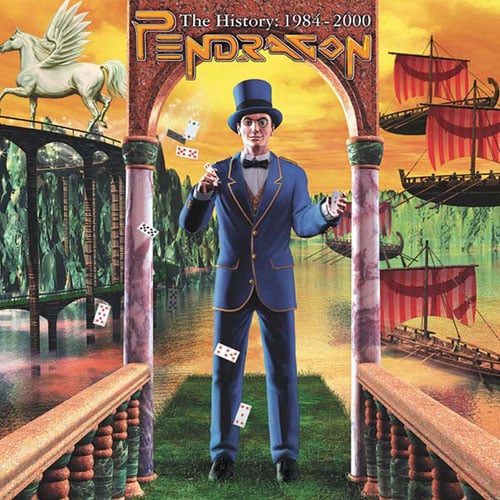

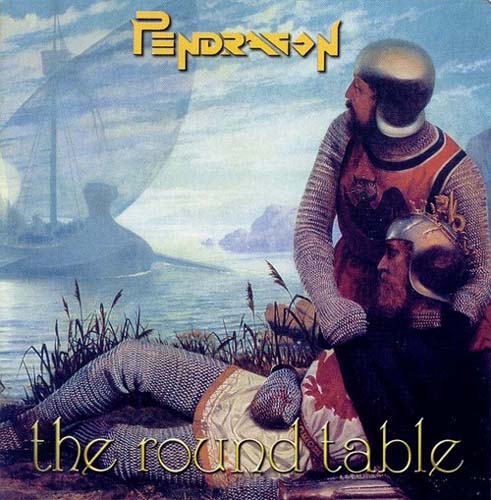
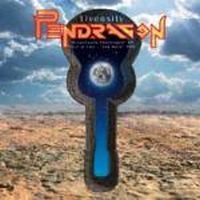
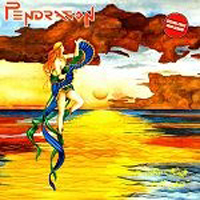
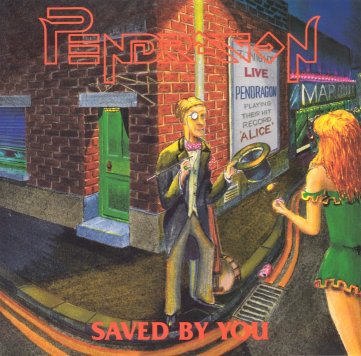
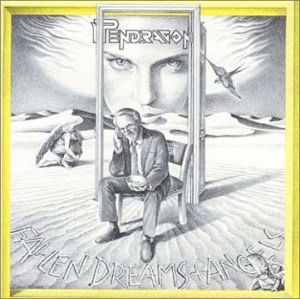
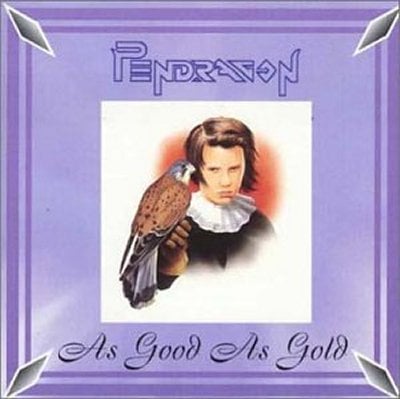
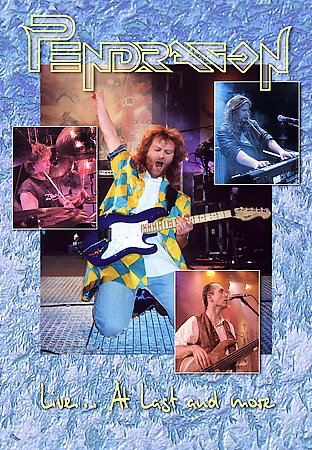
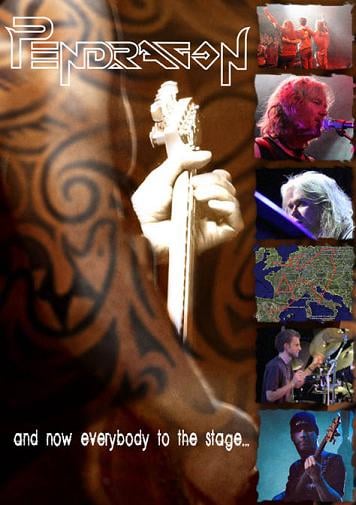
No comments:
Post a Comment